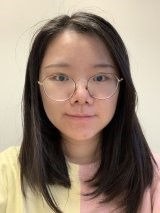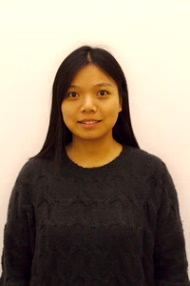Focusing on addressing the challenges associated with defects in gallium indium phosphide (GaInP) nanowire light-emitting diodes (LEDs), Qi Shi and Yue Zhao want to develop a novel technique, AI-enhanced intensity modulation two-photon excited photoluminescence microscopy (IM2PM). This method aims to provide detailed insights into the surface defect properties and associated recombination dynamics in GaInP nanowire LEDs influencing material choices for high-quality LEDs. This collaborative project was granted a Light & Materials Young Investigator Award 2023.
The inherent defects formed during the growth of GaInP nanowires lead to non-radiative losses and limit the quantum efficiency of a LED. The newly developed AI-enhanced intensity modulation two-photon excited photoluminescence (PL) microscopy (IM2PM) is used to study the fundamental photophysical properties of the defects and how surface passivation influences the related carrier recombination processes with sufficient spatial resolution. The information on the defect-related dynamics of surface passivation will be used to optimize the surface passivation of GaInP nanowires. This will lead to the development of high-quality LEDs with improved efficiency.

“Our project bridges the gap between light and materials science, GaInP nanowires micro-LED construction and passivation (material), and AI-enhanced functional microscopy (light) to study surface defect properties and carrier recombination dynamics”, says Qi Shi. This project provides valuable insights into material behaviour under light excitation and proposes a novel feedback-controlled material optimization system for a new generation of sustainable LEDs, which could contribute to their applications in energy-saving LEDs required by industry and society.
This interdisciplinary project opens doors to many future opportunities. “Scientifically, our research can lead to a deeper understanding of surface defect-related dynamics in GaInP nanowires, guiding the development of material choices for high-quality LEDs with improved efficiency. Collaboratively, our expertise in surface passivation and AI-enhanced functional imaging can foster future collaborations between academia and potential industry, driving innovation in sustainable LED technology”, explains Yue Zhao.
About the team


Yue Zhao is a PhD student in Solid State Physics with expertise in surface passivation of GaInP nanowires.
Qi Shi is a postdoc researcher in Chemical Physics with expertise in AI-enhanced functional imaging.
With Yue’s extensive experience in GaInP nanowire construction and passivation (at Lund Nano Lab), and Qi’s expertise in IM2PM experimental facilities (at the Department of Chemical Physics) and computational resources (Lund University Centre for Scientific and Technical Computing, LUNARC), the team is ready to tackle the challenges and opportunities at the intersection of light and materials.
Read about the other projects granted the Light & Materials Young Investigator Award 2023:
- Confined light-matter interactions and exciton dynamics with a versatile tuneable microcavity
- Harnessing Cutting-Edge Light sources in Lund for Insights and Applications of Synthesized Carbonaceous Nanoparticles
- Light-Driven Material Optimization
- Studying the temporal dynamics of light driven coherent electron waves in nano structures
